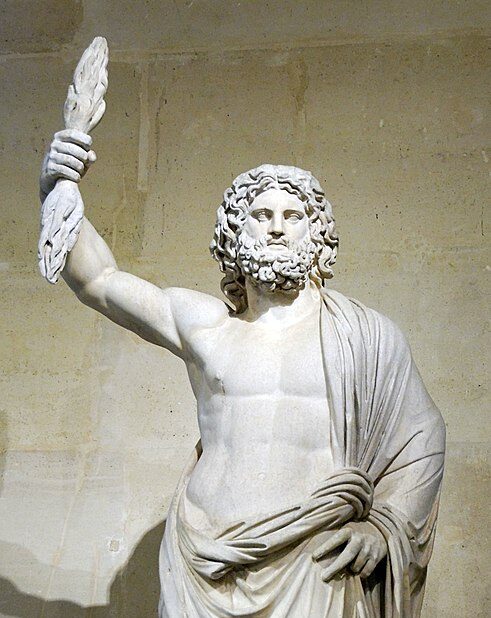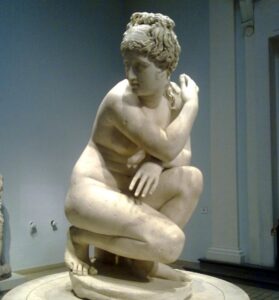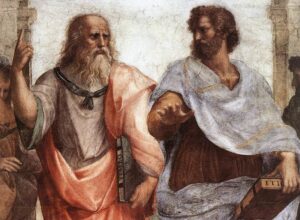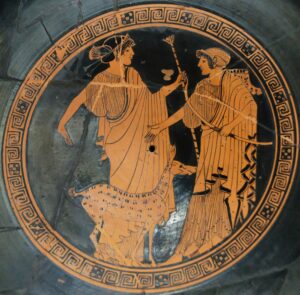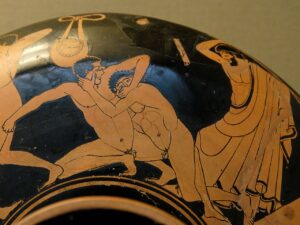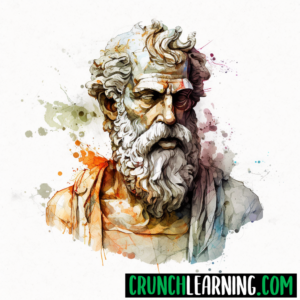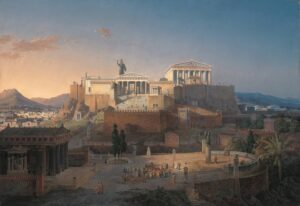Zeus is an important figure in ancient Greek religion and mythology. He is considered the king of the gods, and was one of the twelve Olympians, which were said to reside on Mount Olympus. He is the god of the sky, lightning, thunder, law, order, and justice. As stated above, he is considered to be the ruler of the sky, and was often depicted as a powerful, bearded man holding a lightning bolt.
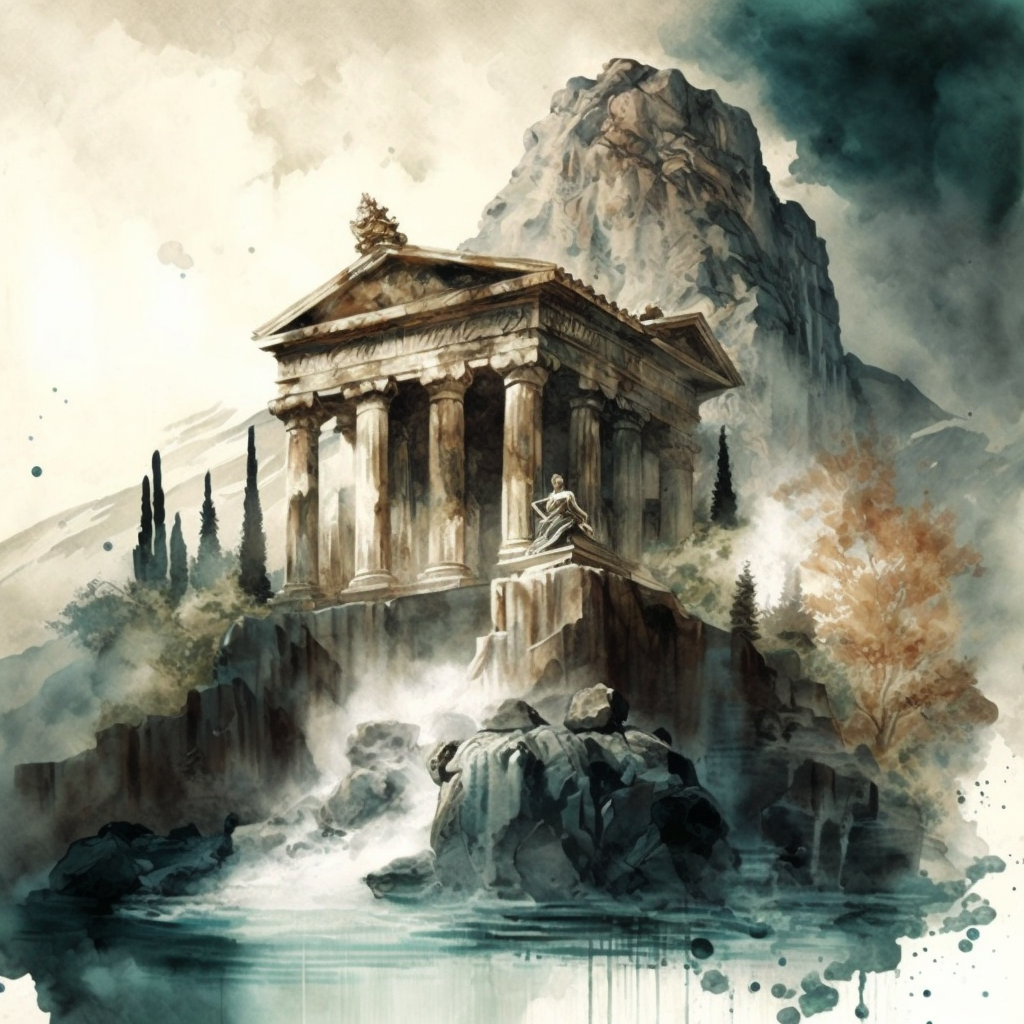
Origins and Family of Zeus
Zeus is the son of Cronus and Rhea, the Titans who ruled the world before the gods. When Zeus was born, Cronus swallowed him, along with his siblings, to prevent them from overthrowing him. However, Rhea managed to save him and raise him in secret on the island of Crete. When he grew up, he defeated Cronus and the Titans, freeing his siblings and establishing himself as the ruler of the gods.
Zeus is married to his sister Hera and is considered the father of many famous mythological figures, including Athena, Apollo, Artemis, Ares, Dionysus, Hermes, and Hercules, among others.
Powers and Domain of Zeus
As stated above, Zeus was one of the twelve Olympian gods and was considered the most powerful of all the gods. He wields great power, including the ability to control the weather, such as thunder and lightning. He also has the power to hurl thunderbolts, which he used to punish those who disobeyed him or committed crimes. In addition, Zeus is considered the patron of hospitality, law, and order.
He is often depicted carrying a lightning bolt and wearing a crown of oak leaves, which symbolize his power and authority over the other gods. He is often associated with the eagle, which was considered his sacred bird.
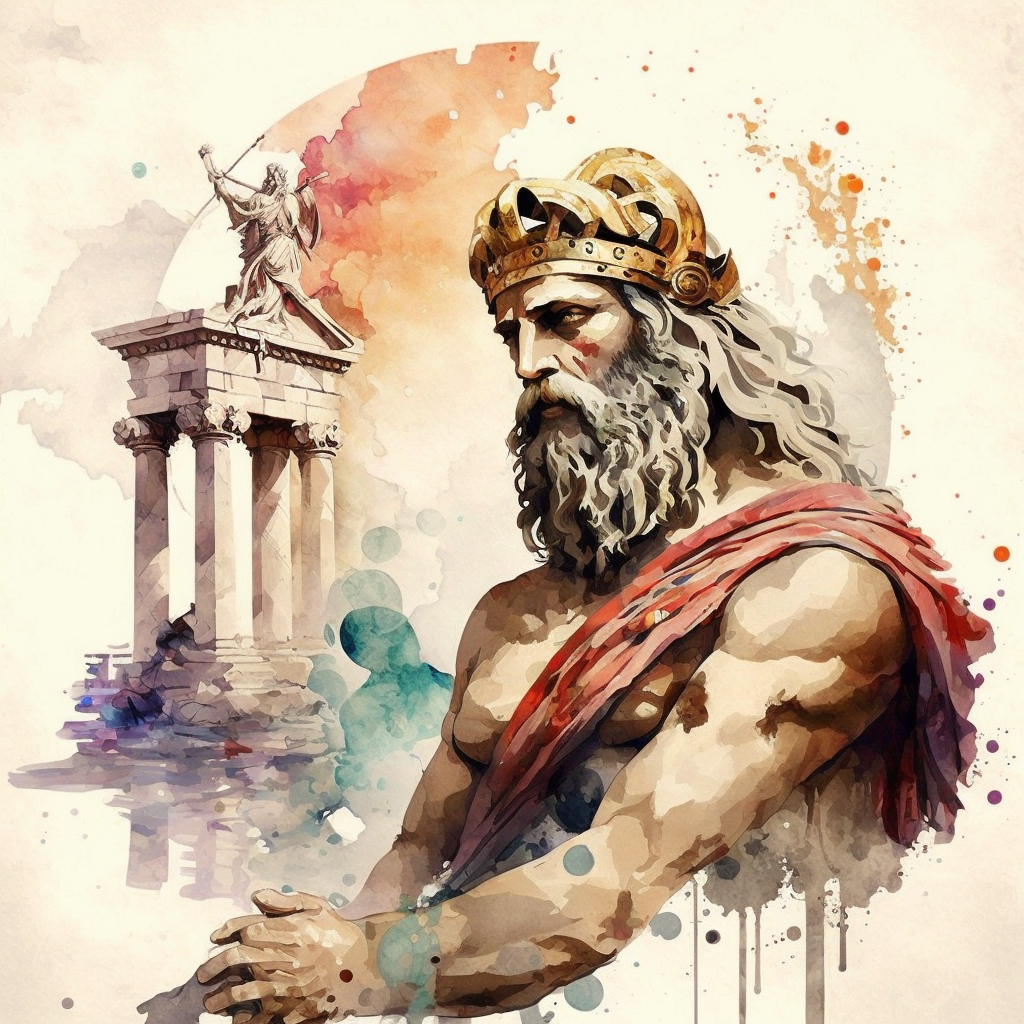
Zeus’ Role in Ancient Greek Mythology
Zeus played a central role in many Greek myths and legends. He was involved in many wars, such as the Titanomachy, which was a war between the Titans and the gods, and the Gigantomachy, which was a war between the giants and the gods.
He also had many affairs with both gods and mortals, and fathered many children from these relationships. One of the most famous of these was Perseus, who was born from his affair with the mortal woman Danae.
Furthermore, he is also known for his famous quarrels with his wife Hera, and for his punishment of the Titan Prometheus, who stole fire from the gods and gave it to mortals
Ancient Greek mythology includes several stories about Zeus. Some of the most well-known stories about Zeus include:
- The story of his birth, in which he was said to have been born on the island of Crete and was raised by the nymphs in a cave, who helped him to overthrow his father Cronus to become the king of the gods.
- The story of his marriage to Hera, in which he courted her by disguising himself as a cuckoo bird to gain her sympathy and later married her to become the king of gods and goddesses.
- The stories in which he had children with many mortal women and goddesses, including Athena, Apollo, Hermes, Perseus and Persephone.
- The story of the Trojan War, in which he was said to have played a role in the outcome of the war by supporting the Greeks and intervening on their behalf.
Zeus’ Importance and Legacy
Zeus’ importance to ancient Greek mythology was significant. For instance, he played a central role in ancient Greek religion and culture. He was widely worshiped and revered, and many religious festivals and rituals were dedicated to him. The ancient Greeks also believed that he controlled the weather and the natural world, and they sought his favor to ensure good crops and other blessings.
In terms of legacy, Zeus’s image and symbols are still widely used in art and popular culture today and he is still an important figure in Greek mythology. His name has become a common noun referring to a powerful ruler or leader. His stories and myths continue to be popular subjects in literature and art, and his role as the king of the gods and god of sky, lightning, thunder, law, order, and justice is still relevant in modern society.

